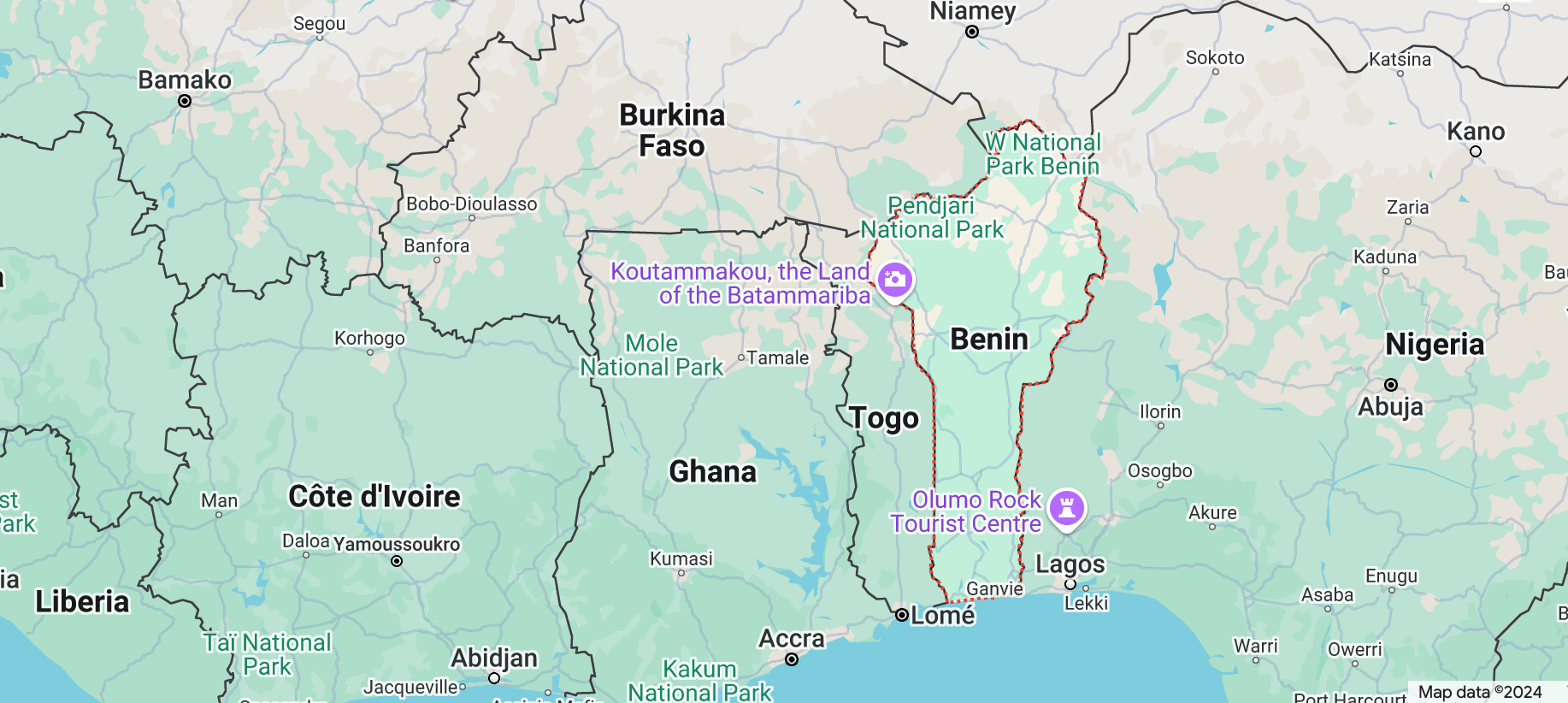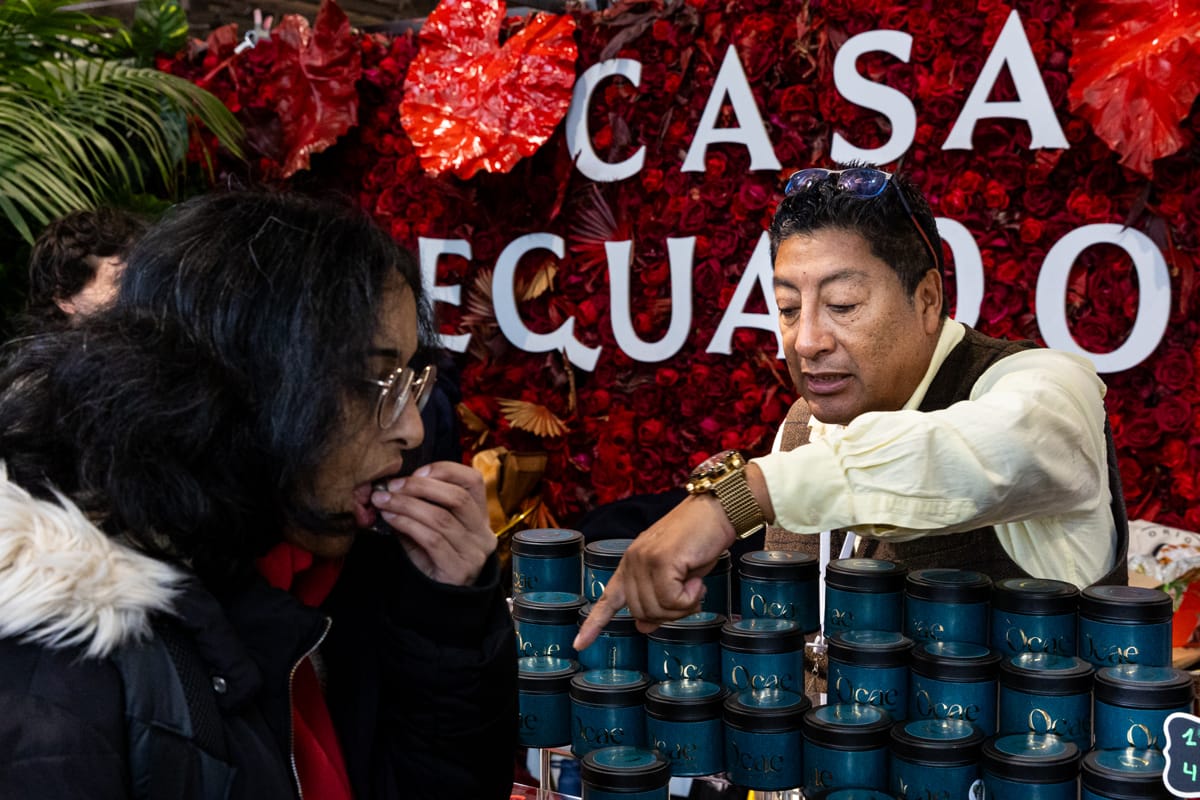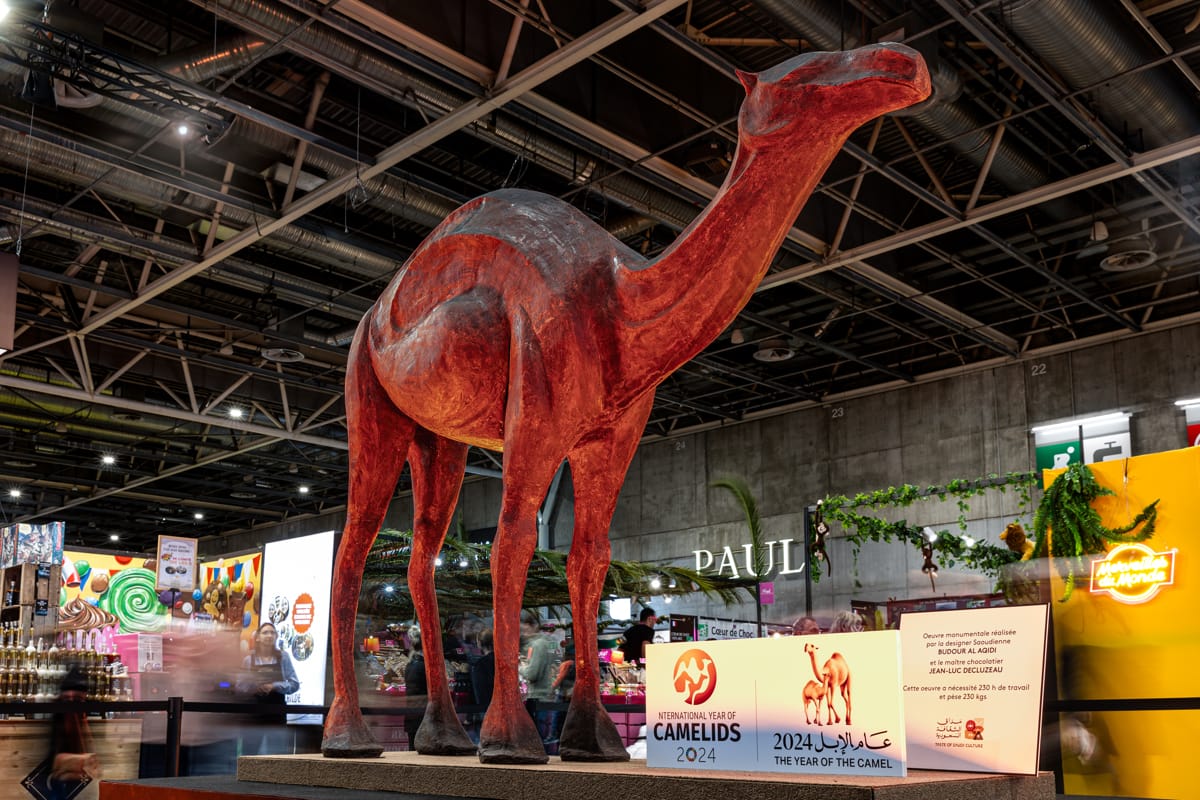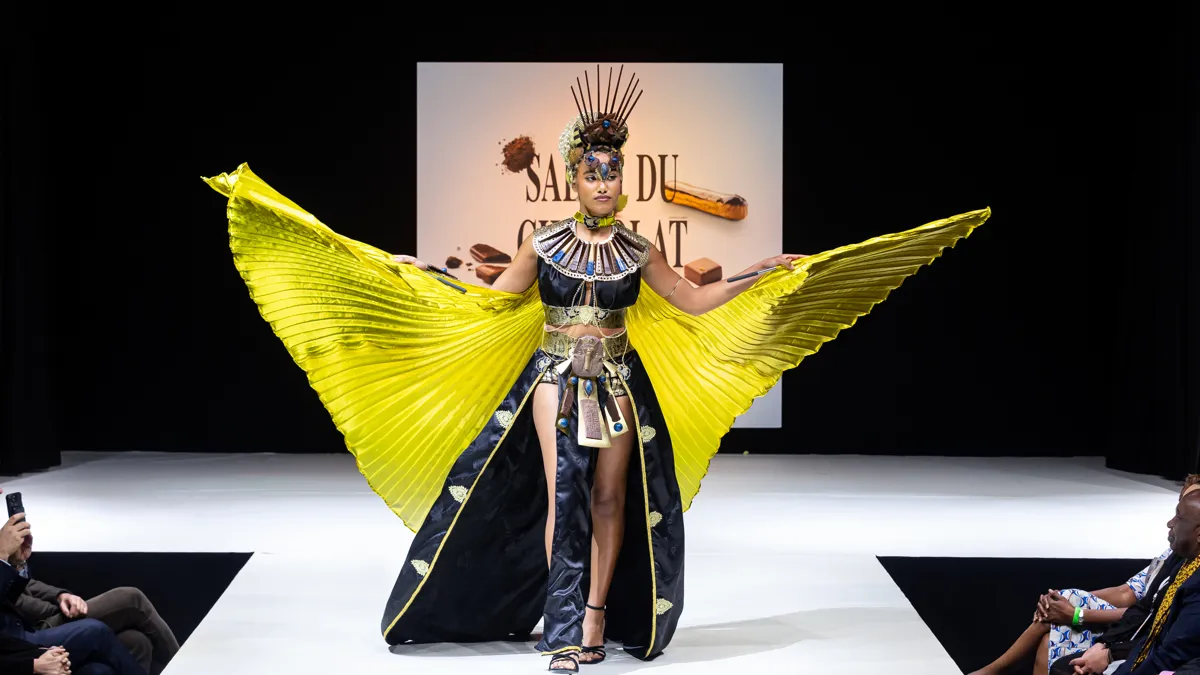Check out the exclusive video from Salon du Chocolat 2024
Haiti’s internal troubles have been well documented this year, with the Caribbean country in a state of near anarchy, so it was somewhat surprising and welcoming to see the AYITIKA brand represent its cocoa industry at the Salon.
‘Made in Haiti’
The company markets itself with a ‘root to the bar concept’. It has established its own chocolate-making factory, enabling it to master the entire productive and organic cocoa ecosystem, similar to setups in the Dominican Republic, Colombia, and Ecuador. Its ‘Made in Haiti’ chocolate bars have the potential to put the country back on the map for more positive reasons … as a producer of excellent cocoa and chocolate.

‘100% Benin’
Benin (population 13.71 million) is not a country known for its cocoa, and many would need help pinpointing it on a map. But it is sandwiched, with Togo, between Ghana and Nigeria, and nestled firmly in the cocoa belt.
There were reports of an attempted coup d'état recently. Still, Maxime Elegbede, director of Okochoko, a company making its second appearance at the Salon de Chocolat, didn't mention any civil unrest in his country when CocoaRadar spoke to him.
Elegbede says that he was in the banking business in a previous life and established Okochoko four years ago.
“We sell mainly in Benin, but we do have distribution here in France and in Africa. We use, cocoa from Benin and, the whole production is done in Benin. That's why our slogan is, ‘100% Benin’.
Cocoa bean production in Benin is less than 2,000 tonnes annually, and Elegbede said there are only two chocolate manufacturing companies in Benin.
The revival of Benin’s cocoa-growing industry began in 2003, and the current government's ambition is to establish approximately 50,000 hectares of sustainable cocoa trees, doubling the income of producers.

The rise of Ecuador
Ecuador’s rise as a major cocoa producer (it is currently the third largest, only behind Côte d’Ivoire and Ghana) was also evidenced in Paris.
Sophia Artieda, CEO of Arariwa Chocolate, says it produces healthy and organic cocoa and works with local communities in Ecuador. She says her chocolate is special because of its flavour. “The cacao is really good for your health and also makes you happy. There are a lot of benefits, like a high percentage of cacao.”

Chocolate dress catwalk
Organisers said this year’s Salon du Chocolat de Paris included 250 exhibitors from 30 countries and attracted more than 92,000 visitors. The daily chocolate dress catwalk and the chance to meet with top international chefs are the main attractions contributing to the event's festive dimension, making it popular with Parisians.

